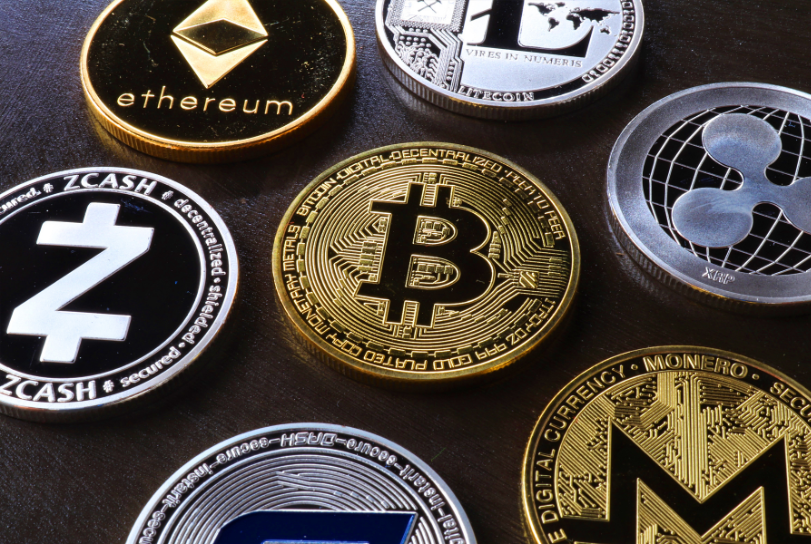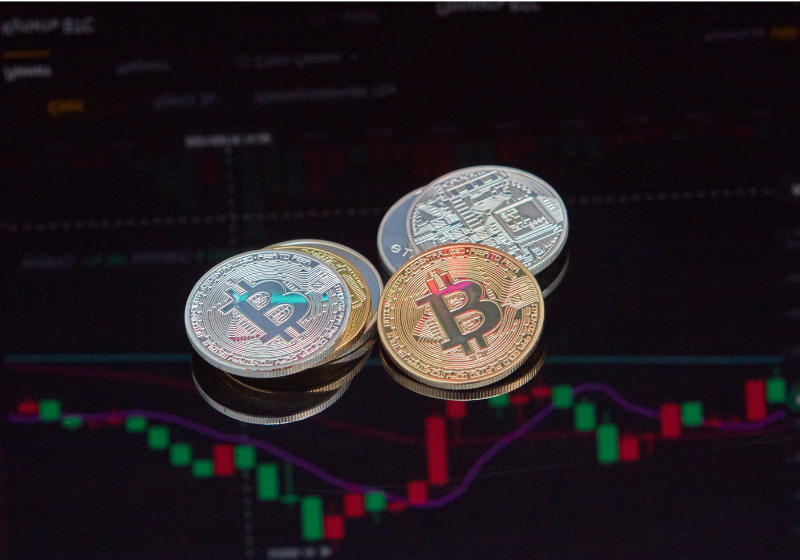Cryptocurrency has taken the world by storm. From Bitcoin to Ethereum, digital coins are changing how people invest, trade, and even think about money. But for beginners, it can feel confusing: what is crypto, how does trading work, and is it really safe?
In simple terms, cryptocurrency trading involves buying and selling digital coins to generate a profit. It’s similar to trading stocks, but everything happens online and without banks in the middle. Whether you want to grow your savings or just understand this new digital trend, learning how to trade cryptocurrency is a great first step.
In this beginner’s guide, we’ll walk you through everything from choosing the right exchange to understanding cryptocurrency mining and even how cryptocurrency taxes work. By the end, you’ll know exactly where to start and how to trade smartly and safely.
Table of Contents
What Is Cryptocurrency?
Cryptocurrency is a type of digital money that exists only online. Unlike traditional money, it isn’t controlled by any government or bank. Popular cryptocurrencies include Bitcoin, Ethereum, and Litecoin.
Cryptocurrencies are based on blockchain technology, which is like a public digital ledger. It keeps track of all transactions, making crypto secure and transparent.
People are drawn to cryptocurrency because it offers new ways to invest, trade, and earn money. However, it’s also risky if you don’t understand how it works. In this guide, you will learn:
- How to trade cryptocurrency safely
- The basics of cryptocurrency mining
- What to know about cryptocurrency taxes
By the end, you’ll have a clear roadmap to start your cryptocurrency journey.
How to Trade Cryptocurrency: Step-by-Step

Trading cryptocurrency means buying and selling digital coins to make a profit. Here’s how beginners can start:
1. Choose a Reliable Cryptocurrency Exchange
A cryptocurrency exchange is a platform where you can buy, sell, or trade coins. Popular exchanges include:
- Coinbase – beginner-friendly and easy to use
- Binance – offers advanced tools for trading
- Kraken – secure and reliable for long-term traders
Tips for choosing an exchange:
- Check security features like two-factor authentication
- Look for low trading fees
- Make sure the platform supports your preferred coins
2. Create Your Account
Sign up on the exchange and complete the verification process. Most exchanges ask for:
- Full name
- Government ID
- Proof of address
Some platforms also require linking a bank account or credit card. Make sure you use a secure password and enable two-factor authentication (2FA).
3. Deposit Funds
Once your account is verified, deposit money to start trading. You can deposit via:
- Bank transfer
- Credit or debit card
- Other cryptocurrencies
Start with a small amount while you learn. Cryptocurrency prices can be very volatile, so never invest more than you can afford to lose
4. Pick the Right Cryptocurrency
For beginners, it’s best to start with well-known coins like Bitcoin or Ethereum. Do your research before investing:
- Check the coin’s price history
- Read recent news about the coin
- Understand its use case and technology
Avoid unknown coins with promises of quick profits. These are often scams.
5. Types of Cryptocurrency Trading
There are different ways to trade:
- Buy and Hold (HODL): Buy a coin and hold it for months or years, expecting its value to increase.
- Day Trading: Buy and sell coins frequently to profit from short-term price changes
- Swing Trading: Hold coins for a few days or weeks to take advantage of price swings.
- Scalping: Make many small trades to profit from tiny price movements.
For beginners, buy and hold is safer and easier to manage.
6. Monitor Your Investments
Keep track of your trades and portfolio. Use tools like:
- Mobile apps from exchanges
- Price alert apps
- Cryptocurrency tracking websites
Set clear goals for profit and know when to sell. Avoid emotional decisions when prices rise or fall quickly.
Cryptocurrency Mining: How It Works
Cryptocurrency mining is the process of creating new coins and verifying transactions on the blockchain. Miners use computers to solve complex mathematical problems. Once solved:
- New coins are released
- Transactions are added to the blockchain
Mining requires:
- Powerful computers or mining rigs
- A lot of electricity
- Knowledge of mining software
For beginners, mining can be expensive and technically challenging. Many start by trading instead of mining.
Types of Mining:
- Proof of Work (PoW): Miners compete to solve problems; Bitcoin uses this system.
- Proof of Stake (PoS): Validators are chosen based on the number of coins they hold. Ethereum now uses PoS.
Mining can still be profitable, but it’s important to calculate electricity costs and hardware expenses first.
Cryptocurrency Taxes: What You Need to Know
Cryptocurrency is treated as property or an asset in most countries. This means profits from trading or mining are often taxable.
Key Points About Cryptocurrency Taxes:
- Trading Taxes: If you sell crypto for more than you paid, you may owe capital gains tax.
- Mining Taxes: Coins you earn from mining are usually considered income. You may need to report the fair market value at the time you received them.
- Record Keeping: Keep track of:
- Purchase and sale dates
- Prices
- Mining earnings
- Software and Professionals: Use cryptocurrency tax software or consult a tax professional for accurate reporting.
Ignoring cryptocurrency taxes can lead to penalties, so it’s important to stay compliant.
Tips for Safe Cryptocurrency Trading
- Use Secure Wallets: Hardware wallets like Ledger or Trezor are safer than leaving coins on exchanges.
- Enable Two-Factor Authentication (2FA): Adds extra security to your accounts.
- Avoid Scams: Never share your private keys or trust unknown investment schemes.
- Start Small: Learn the market before investing large amounts.
- Stay Updated: Cryptocurrency is constantly changing; read news regularly.
Common Mistakes Beginners Make
- Investing without research
- Chasing “hot” coins without understanding them
- Ignoring taxes and legal obligations
- Leaving crypto on exchanges for too long
- Trading emotionally instead of following a strategy
Learning from these mistakes can help you grow as a safe and successful trader.
Conclusion
Cryptocurrency offers exciting opportunities, but it comes with risks. By understanding:
- How to trade cryptocurrency safely
- The basics of cryptocurrency mining
- Rules around cryptocurrency taxes
…you can start your crypto journey with confidence.
Remember, always research before investing, use strong security measures, and consult professionals for tax advice. With patience and knowledge, trading cryptocurrency can be rewarding.
FAQs
Q1: Do I need a lot of money to start trading cryptocurrency?
No. You can start with a small amount. Many exchanges allow purchases as low as $10 or $20.
Q2: Can I mine cryptocurrency at home?
Yes, but it can be expensive due to electricity and hardware costs. Beginner traders often start with buying and holding instead.
Q3: Are cryptocurrency profits taxed?
Yes. Most countries consider profits from trading or mining taxable. Keep records and consult a tax professional.
Q4: Which is better for beginners: trading or mining?
Trading is easier for beginners. Mining requires expensive hardware and technical knowledge.













